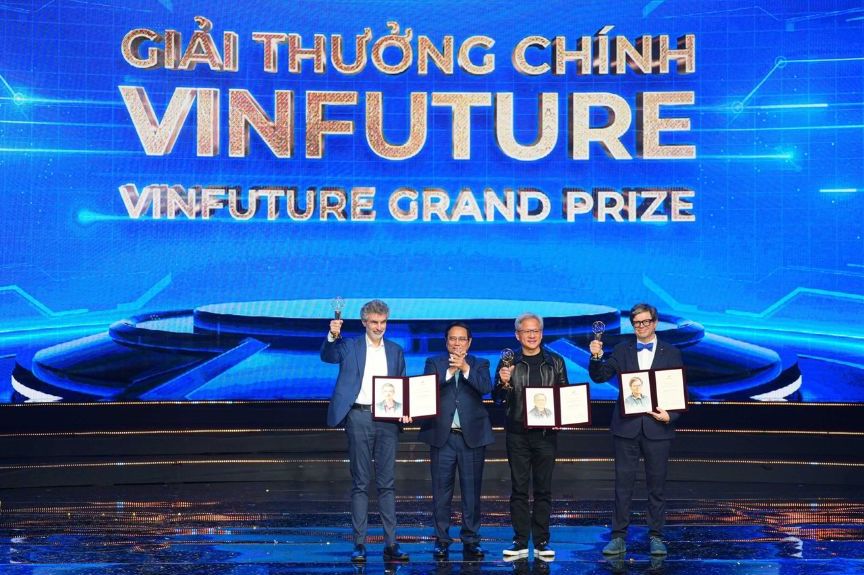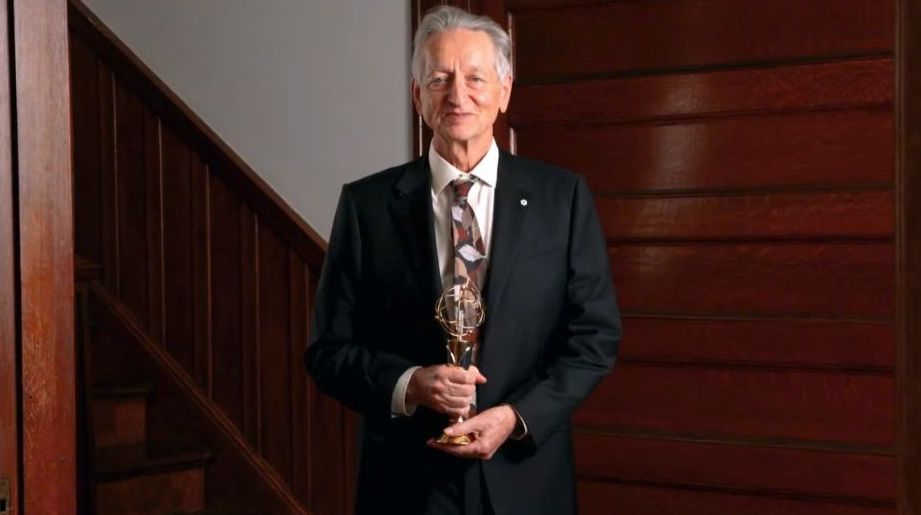The VinFuture Prize 2024 has honored breakthrough achievements in the fields of Deep Learning (Artificial Intelligence), biotechnology and advances in medical treatment. Can you share your thoughts on these winning projects?
- Prof. Richard Henry Friend - Chairman of the Prize Council: - Every year, the VinFuture Prize brings interesting surprises. This year, I was particularly impressed with the Main Prize when it honored a "power trio" in the field of Artificial Intelligence. That is the mathematical and algorithmic foundation from scientists Yoshua Bengio, Geoffrey Hinton and Yann LeCun; the pioneering data set from Fei-Fei Li; and the hardware breakthrough from Jensen Huang. The perfect combination of these three elements has created the AI revolution that we are witnessing.
With the Special Awards, I am deeply moved by the achievement of CAR-T therapy, a great step forward in cancer treatment. This is not only a scientific breakthrough, but also a new hope for millions of patients.
Meanwhile, Dr. Firdausi Qadri, who won the Special Prize for Scientists from Developing Countries, is a great example of applying science to practice. She saved countless lives in Rohingya refugee camps with her cholera vaccine. And Prof. Kristi Anseth, with her research on biomaterials, demonstrated a complete journey from the laboratory to clinical application.
How do you evaluate the scientists, experts, and outstanding minds behind those works?
- Prof. Richard Henry Friend: Having had the opportunity to meet the winners, I consider it a great privilege. The most wonderful thing I have realized is that there is no one pattern or story that is the same - each person has their own uniqueness.
There are people who have seen things that others have not seen. There are people who have the extraordinary perseverance to pursue their research journey to the end. This is what we should honor.

This year, the VinFuture Prize winners include not only academic researchers, but also pioneering technologists from the business world, such as the Founder and CEO of NVIDIA Corporation. Can you explain this decision?
- Professor Richard Henry Friend: This decision reflects an important reality of modern science: great breakthroughs often come from a combination of fundamental research and applied technology.
This is most evident in the AI revolution. And the success of AI today is the result of three inseparable factors as I mentioned above. None of these elements can create miracles alone. This is exactly what VinFuture aims for - a comprehensive recognition of contributions from all components of the science and technology ecosystem.
Breakthrough innovations often come from the intersection of academic research and industrial development. Only when scientists and businesses work together can we create breakthroughs that truly matter to humanity.
What major challenges and difficulties for humanity will the practical application of these innovations solve, sir?
- Professor Richard Henry Friend: This year's honored works are solving humanity's greatest challenges in very practical and effective ways.
In the health sector, we are witnessing a significant shift from treatment to prevention. Preventive health interventions are not only cost-effective but also bring long-term benefits to public health.
In cancer, we are at a turning point. For decades, despite understanding the nature of cancer, we have not found effective treatments. CAR T cell therapy has changed that, opening a new era in cancer treatment with promising results.

As for Artificial Intelligence, this is perhaps the biggest surprise. After decades of being talked about but not really breaking through, AI has made spectacular progress in recent times. Through discussions at scientific conferences, we realized that the achievements have been impressive, but this is only the beginning.
Thank you for the interview!









